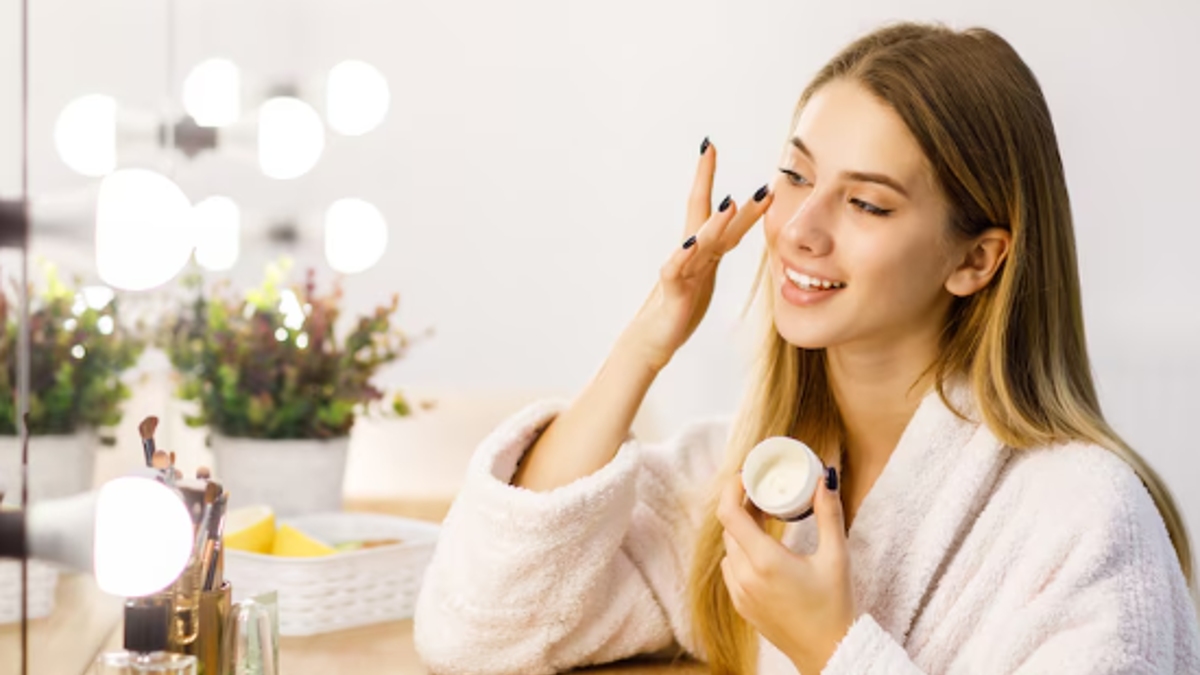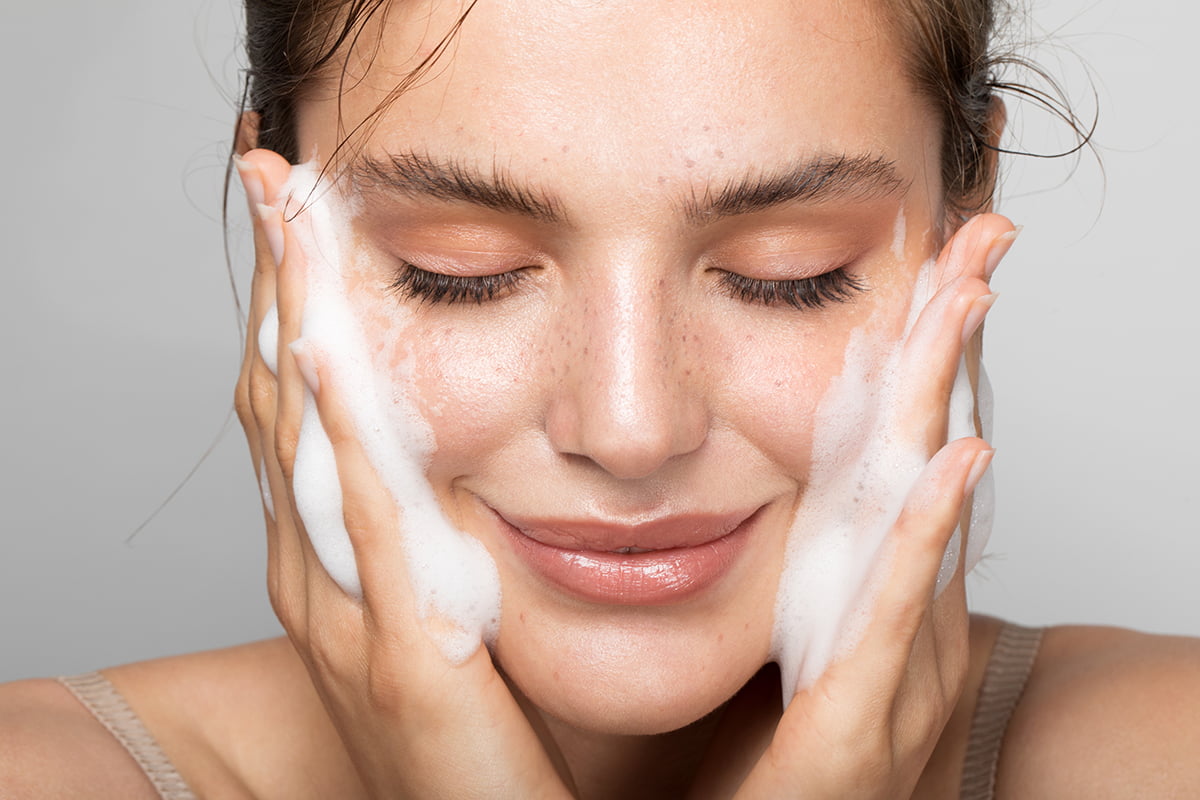Stop Wasting Money: 5 Skincare Trends That Actually Work, Backed by Research !!!
Is your skincare routine based on hype or hard science?
Let’s be honest—many of us fall into the trap of blindly following skincare trends. From glass skin to snail mucin and LED face masks, the internet is packed with beauty fads. But what actually works?
Have you ever spent a fortune on a trending skincare product only to see zero improvement in your skin? You’re not alone. In today’s world, where beauty influencers push products every day, it’s tough to know what’s actually scientifically proven and what’s just clever marketing.
This blog is your truth serum. We’re cutting through the fluff and breaking down the Top 5 skincare trends that are backed by real scientific research—not social media hype.
So if you’re someone who wants real results, keep reading. Your skin (and wallet) will thank you.

🌿 1. Skin Microbiome Care: The New Frontier in Skincare
📌 What’s the buzz?
You’ve heard about gut health, right? Well, your skin has its own microbiome too—a living ecosystem of bacteria, fungi, and viruses that protect your skin from infections and regulate inflammation.
🧪 The science:
According to a 2021 study published in Nature Reviews Microbiology, maintaining a balanced skin microbiome can reduce issues like acne, eczema, and rosacea. Probiotic skincare products support this by feeding your skin’s good bacteria.
Fun Fact: A 2023 Harvard review found that prebiotic and probiotic ingredients in skincare helped improve skin hydration by 34% and reduced sensitivity by 26%.
✅ What to look for:
- Products with lactobacillus, bifida ferment lysate, or inulin
- Fragrance-free, pH-balanced cleansers that don’t strip your natural barrier
💡 2. Niacinamide: The Powerhouse Ingredient for All Skin Types
📌 What’s the buzz?
If you’ve ever looked at ingredient lists, you’ve probably seen niacinamide. But it’s not just a trend—it’s a dermatologist favorite and one of the most studied skincare ingredients.
🧪 The science:
A 2016 study in the Journal of Clinical and Aesthetic Dermatology showed that 5% niacinamide improved skin tone, reduced hyperpigmentation, and even helped regulate oil production in acne-prone individuals.
According to the American Academy of Dermatology, niacinamide also boosts collagen and improves skin texture.
✅ Why it’s not hype:
Unlike vitamin C or retinol, niacinamide is non-irritating, making it ideal for sensitive skin. It’s also multi-functional—tackling dullness, fine lines, enlarged pores, and redness.
☀️ 3. Sunscreen Reigns Supreme—Every Single Day
📌 Why are we still talking about sunscreen?
Because most people still don’t use it properly. In fact, according to a 2023 survey by the American Skin Association, only 11% of people apply sunscreen daily—yet UV radiation causes 90% of visible skin aging.
🧪 The science:
Numerous studies—including one published in Dermatologic Surgery—have proven that consistent sunscreen use reduces premature aging and skin cancer risk. SPF isn’t just for sunny days; UV rays can penetrate clouds and glass too.
A 4.5-year Australian study showed that daily sunscreen users had 24% fewer signs of skin aging compared to occasional users.
✅ Choose your SPF wisely:
- Go for broad-spectrum SPF 30 or higher
- Look for zinc oxide or titanium dioxide if you prefer mineral sunscreens
- Don’t forget neck, ears, and hands!
🧴 4. Retinoids: Still the Gold Standard for Anti-Aging
📌 Trend or timeless?
Retinoids aren’t new, but they’ve seen a comeback lately—and for good reason. They’re one of the few ingredients with FDA approval for treating wrinkles and acne.
🧪 The science:
Retinoids (like retinol or prescription-strength tretinoin) work by increasing cell turnover, unclogging pores, and stimulating collagen. A landmark study in the Archives of Dermatology showed that participants using tretinoin for 24 weeks had significant reductions in wrinkles and pigmentation.
Dr. Shari Marchbein, a New York dermatologist, explains that retinoids improve skin texture by 43% in 3 months, based on patient data.
✅ Tips for use:
- Start slow: 2–3 times a week, and moisturize after application
- Always wear sunscreen, as retinoids can make your skin more sun-sensitive
- Don’t mix with exfoliating acids initially
🧊 5. Skin Barrier Repair Is the Real Game-Changer
📌 Why it matters:
Ever felt like your skin is red, flaky, or irritated no matter what you apply? Chances are your skin barrier is damaged.
Think of your skin barrier as a brick wall—if it’s weak, everything irritates it. In 2025, there’s a growing scientific focus on barrier repair as the foundation of all effective skincare.
🧪 The science:
According to a 2022 study published in The Journal of Investigative Dermatology, a compromised skin barrier can lead to increased water loss, acne, eczema, and even premature aging.
Barrier-supporting ingredients like ceramides, fatty acids, cholesterol, and panthenol were shown to improve hydration by 40% in just 2 weeks.
✅ Barrier-loving products:
- Look for ceramide-rich moisturizers
- Avoid over-exfoliation (especially if using AHAs or retinol)
- Include panthenol, squalane, or madecassoside in your routine
🧬 Bonus Tip: Avoid the “Skincare Cocktail” Trap
Using too many actives together (like vitamin C + retinol + exfoliating acids) can do more harm than good. A simplified, science-backed routine with 3–4 effective products often delivers better results than a 10-step routine full of hype.
🧠 Key Takeaways: No More Guesswork in Skincare
Let’s summarize what you just learned:
| Trend | Backed by Science? | What It Helps With |
| Skin Microbiome Care | ✅ Yes | Sensitivity, acne, hydration |
| Niacinamide | ✅ Yes | Pores, oil, texture, dullness |
| Sunscreen | ✅ Yes | Aging, pigmentation, skin cancer |
| Retinoids | ✅ Yes | Wrinkles, acne, texture |
| Barrier Repair | ✅ Yes | Redness, flakiness, irritation |
📣 Final Thoughts: What You Should Do Now
If you’re tired of wasting money on trendy products that don’t deliver, it’s time to listen to the science. Here’s what you can do starting today:
✅ Audit your skincare routine—remove what’s not backed by evidence
✅ Stick to ingredients like niacinamide, retinoids, ceramides, and SPF
✅ Keep it simple, but consistent
✅ Always patch-test before trying new actives
✅ Consult a dermatologist for personalized advice
skincare trends 2025, science-backed skincare, dermatologist recommended skincare, effective skincare routine, niacinamide benefits, sun protection, retinoids for aging, healthy skin barrier, skin microbiome
